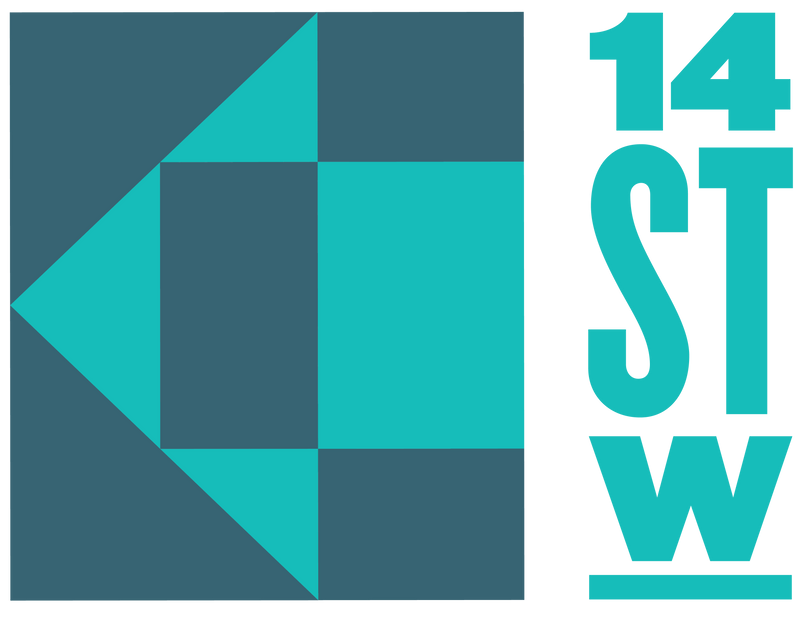Keyamo Onoge talks about Photography and Visual Art
Keyamo Onoge

Keyamo talks about his exhibit in the Village Gallery
Keyamo Onoge aspires to make art more accessible. His current exhibit in the Village Gallery shows how he takes his interest in nostalgia and transformative art and creates a masterpiece. His photo transfers are photos that were taken locally and transferred onto canvas and wood pieces.
"I love creating art that looks like it's been found in basement," Onoge said. "I'm always trying to get a reaction that is like, 'Oh! Where is this photo from?' and this process of phototransfer shows that vibe."
Onoge said this idea was inspired by the concept of growing up in Nigeria and washing clothes and rags on a washboard and then hanging them on a clothing line to dry.
"I want to show how by the river, people gather to wash clothes and what not, and in this case, it's art. But you also have a clothing line with people walking around and seeing the art. It's an entire production peice that allows you to decide that the art is to you in your community."
Art is a form of survival
Onoge wants to show that art isn't just for the 1%. Art is often the first thing to go when money is tight, but Onoge says he looks at art as a form pure of expression that can be made for anyone.
"Art hits everyone," Onoge explained. "Too many times, art can be this 'high brow thing,' but art is a form of survival, it is like documentation that says we are here now. It's the thing that gets you through the hard things to the nex thing. Words are limited and art is a thing that exists and cuts through. It doesn't matter if you speak English or whatever, art hits everyone."
"Art should be accessible, sustainable, and practical."
Keyamo photo transfers show that art can be accessible and found anywhere. He's done photo transfers on hand-made paper, rice bags, and coffee bean bags. He wants to express to all visitors that want to view the exhibit that art can be found on anything.
"If you think about some of the fancy foods and 'boujee foods', you can think that at one point, those ingredients were once put together for survival purposes," Onoge said. "The art that moves me, is work that made out of things that they made out of things that they have. Creating from a place of nessecity and a place of lack is art is art that moves people."
Keyamo explained that often convenience and capitalism take away from the accessibility and expectations for being an artist.
"Growing up in Nigeria, and maybe it's just the way it was, but if you wanted potato chips, you went out and got fresh potatoes, peeled and cut them, and then fried them for potatoe chips. You made everything from scratch," Onoge explained. "When someone shows someone in a labeled package and says, 'These are potato chips,' it limites the mind and people think they can't create potato chips even though they have all the supplies to do it."

More about Onoge and his background
"It's what you do with your stuff that counts," said Onoge.Onoge finds inspiration in his surroundings, music videos, traveling, and vintage styles. From Nigeria, he came to the United States on a music scholarship at the University of Charleston. Onoge shared that when the school lost funding for its music program, he had to find a different path while being an immigrant on a student visa. He found himself moving to Huntington, where he ended up getting a business administration undergrad at Marshall. When he began his master's in marketing, the pandemic hit, so he decided to leave school and pursue his passion.
"Photography was a way to search inside other people's lives and their stories, so I could ignore mine," he said. "I found something really beautiful in that. I met really cool people and imy traveling experience inspired me to start creating art in different ways."
Onoge said he hopes his work displayed in the Village Gallery inspires people to be creative with their surroundings and hopefully have a different appreciation for art. While many assume art comes with a high cost, fancy equipment, or the best technology, Onoge said he wants people to be accepting of all types of art, even art made out of clothes, rags, and scrap materials.
"Sometimes art is meant to be high-class, if you will, but sometimes great stories come from the things you have,even if it's hardly anyything. I am not trying to take away from anyone and what they have done, but I am trying to open peoples mind to more than just that. I want people to get away from mainstream sometimes, and be open to anything and everything. I would put it this way, like, even if you aren't necessarily the coolest kid on the block, your life is not less than," Onoge said.
Follow Onoge on Instagram and subscribe to our newsletter for more exclusive interviews! His exhibit will be displayed until Sept. 29th in the Village Gallery located at 610 14 STW!

5.0 (1 Review)
Central City & 14 ST W
544 14th St W
Huntington, WV 25704
www.oldcentralcity.org
